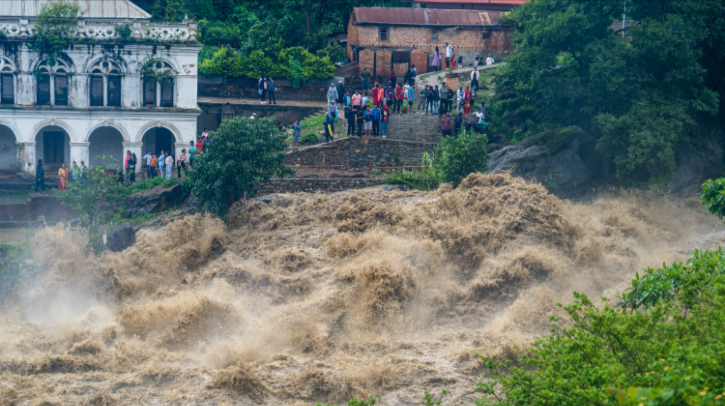WMO has begun working with the Department of Meteorology and Hydrology (DHM) and the Center for Applied Research and Development (CARD) in Nepal to strengthen early warning systems for floods and other disasters faced by the country.
Actions for the future
WMO led a workshop on Common Alerting Protocol (CAP) messages at the end of last month. A product of this meeting is an agreement to develop a draft national implementation plan, including standard operating procedures on CAP) messages and dissemination. An expert from the India Meteorological Department (IMD) was also present at the workshop to provide the necessary technical support to DHM, bringing lessons learned from IMD’s successful implementation and operationalization of CAP.
Two municipalities have been selected to implement prioritized community-based flood management activities jointly with DHM, disaster management authorities and other stakeholders. These activities are funded by the CREWS EW4ALL multi-stakeholder accelerator in LDCs and SIDS project.
Additionally, a high-level meeting with DHM has enabled the finalization of the WMO Assessment Matrix on the end-to-end early warning system (EWS) for floods and drought. The meeting provided an understanding of current capacities, gaps and needs for strengthening EWS in Nepal. These discussions and recommendations will inform the final proposal of a new Adaptation Fund project, set to launch later in 2025.
Workshop training
These advancements took place over a series of workshops. The WMO-led workshop on April 24-25, 2025, covered the implementation of CAP, and brought together more than 35 people from DHM, CARD, disaster management, Early Warnings for All (EW4All) Pillar leads and the Nepal Red Cross.
At the workshop, participants were taught the necessary skills and knowledge to develop standardized warning messages in CAP format and to communicate anticipatory or response actions for various stakeholders to save lives and livelihoods.
On April 27, 2025, a workshop on integrated and community based flood management was organized for 25 participants from national and international organizations as well as local authorities, to build knowledge and awareness on different approaches for managing flooding situations.
The workshop provided insights on integrated flood management and its applications, enabled participants to share information on causes and impacts of flooding, and identified ongoing activities and projects which are strengthening community resilience to flooding events in Nepal.
In related news, the Extraordinary Session of the Commission for Weather, Climate, Hydrological, Marine and Related Environmental Services and Applications (SERCOM-Ext 2025) recently approved new guidelines from the WMO for the cataloging of hazardous events and early warning systems. Click here to read the full story.



